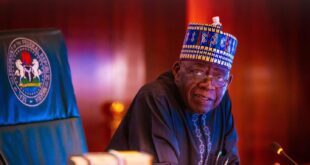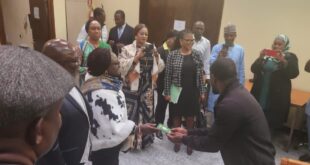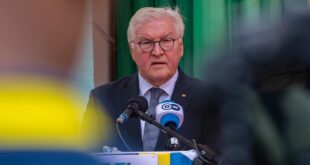Asiwaju Bola Ahmed Tinubu was sworn into office on Monday as the 16th President of the Federal Republic of Nigeria at a colourful ceremony in the country’s capital city of Abuja.
Tinubu, who succeeds Muhammadu Buhari, had won a tough presidential election on 25 February, beating Atiku Abubakar of the main opposition PDP and Peter Obi of the Labour Party. Both Atiku and Obi are in court challenging the victory of Tinubu.
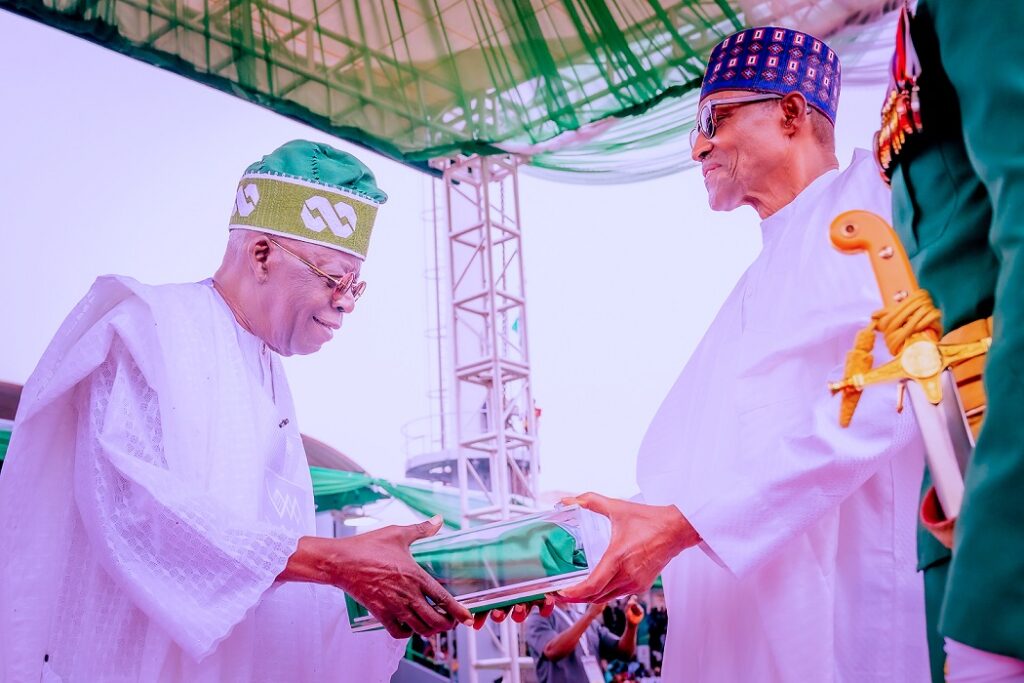
President Tinubu receives the Insignia of state from his predecessor, Muhammadu Buhari, who is generally considered to have left the country in a far worse state that he met it/Photo: Nigerian Presidency
Despite being of the same governing All Progressives Congress (APC) like his predecessor who was ineligible to run again after two four-year terms that began in 2015, Nigerians are waiting for a marked improvement in their lot as Buhari is generally considered to have left the country far worse than he met it.
Nigeria is clearly at a crossroads today; most of the country is insecure due to the activities of bandits, terrorists and sundry criminals. The economy is in dire strait, unemployment is at historic highs and the state of physical infrastructure is generally poor. Moreover, secessionist agitations are threatening national unity.
This is why the celebrations at the Eagle Square, Abuja, where 71-year-old Tinubu was sworn in to steer the ship of the country for the next four years didn’t spread to the streets across the country as Nigerians are generally in a sober mood.
Citizens of Africa’s most populous nation are clearly not in a celebratory mood; they expect Jagaban – as the new president is fondly called by his supporters – to hit the ground running to tackle the pressing challenges facing their country.
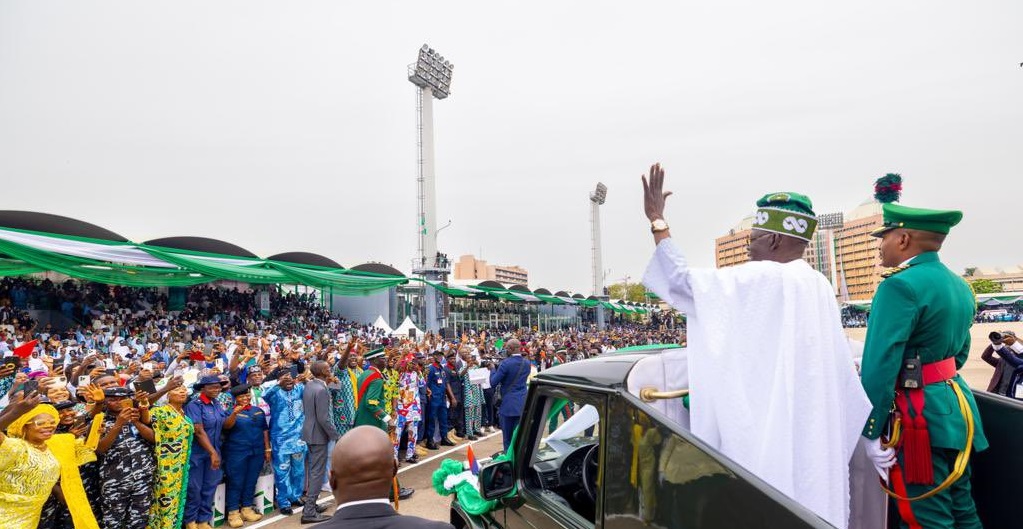
The celebrations at the Eagle Square in Abuja didn’t spill into the streets as Nigerians are generally in a sober mood due to the difficult situation of the country/Photo: Nigerian Presidency
Tinubu has assured the over 200 million Nigerians that he is up to the task. “Renewed hope has dawned in Nigeria,” he had affirmed in his acceptance speech as President-elect on 1 March. On Monday, he reiterated his message of hope.
In his inauguration address in Abuja, Tinubu, a former Lagos State Governor, unveiled a series of steps he would take to position the country on the path of economic development, stability and prosperity.
- Security: The new president said reforming Nigeria’s security architecture was his top priority. He would do this by investing more in security personnel, and provide better training, equipment, pay and firepower.
- Removal of Petroleum Subsidy: Tinubu stated that fuel subsidy had been permanently removed. He said the decision to remove it became imperative because the subsidy regime increasingly favored the rich more than the poor and the costs of the subsidy are too high.
“The funds will be used for better investment in public infrastructure, education, healthcare, and job creation,” he said. - One million jobs: The new president said that his administration would create meaningful opportunities for youths by fulfilling their campaign promise of generating one million new jobs in the digital economy.
He promised to work with the National Assembly to create an omnibus Jobs and Prosperity bill that would give them the policy space to embark on labour-intensive infrastructural improvements. - Local manufacturing: The president said his administration would
promote local manufacturing and reduce import dependency, making electricity more accessible and affordable to businesses and homes.
He promised to also encourage states to develop local sources of electricity. “The government will review all complaints from investors about multiple taxation and anti-investment inhibitions to ensure that investors and foreign businesses can repatriate their dividends and profits home,” Tinubu said. - Unified exchange rate: Tinubu said Nigeria’s monetary policy needs to be thoroughly reviewed. “The Central Bank should work towards a unified exchange rate to direct funds towards meaningful investments in plants, equipment, and jobs that power the real economy. Interest rates should be lowered to increase investment and consumer purchasing in ways that sustain the economy at a higher level.
- Consultation, dialogue with Nigerians: The president said that his administration would govern on behalf of the people but will never rule over them. “The administration is here to mend and heal the nation, not tear it apart,” he said.
Nigerians, who are desperately seeking respite, are looking forward to President Tinubu to deliver on his many promises.
Femi Awoniyi
 THE AFRICAN COURIER. Reporting Africa and its Diaspora! The African Courier is an international magazine published in Germany to report on Africa and the Diaspora African experience. The first issue of the bimonthly magazine appeared on the newsstands on 15 February 1998. The African Courier is a communication forum for European-African political, economic and cultural exchanges, and a voice for Africa in Europe.
THE AFRICAN COURIER. Reporting Africa and its Diaspora! The African Courier is an international magazine published in Germany to report on Africa and the Diaspora African experience. The first issue of the bimonthly magazine appeared on the newsstands on 15 February 1998. The African Courier is a communication forum for European-African political, economic and cultural exchanges, and a voice for Africa in Europe.















